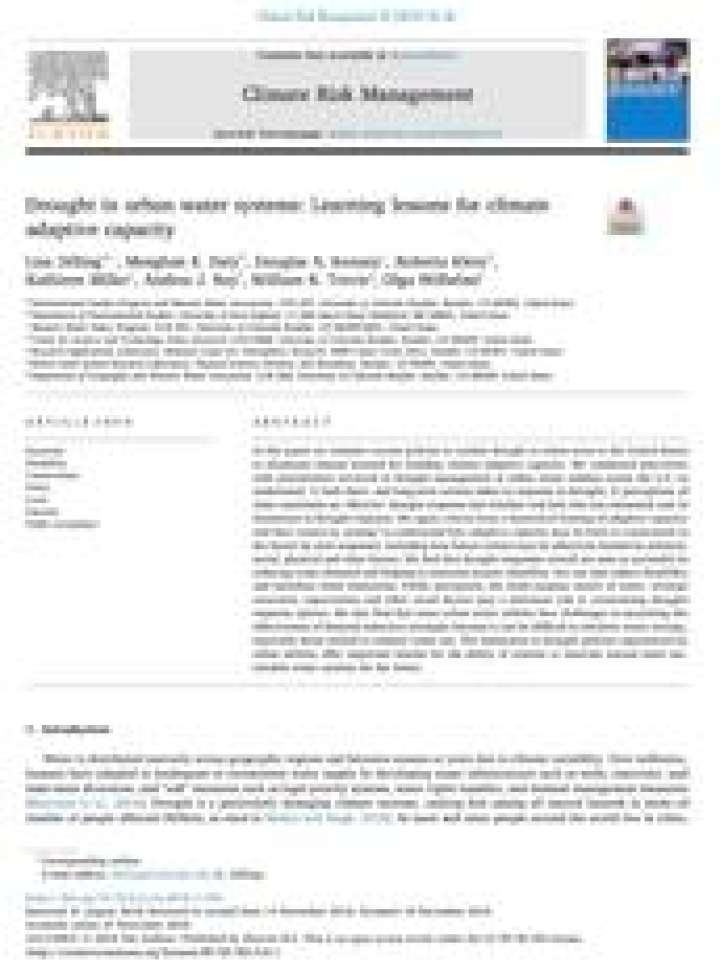Drought in urban water systems: Learning lessons for climate adaptive capacity
This paper examines current policies to combat drought in urban areas in the United States to illuminate lessons learned for building climate adaptive capacity. The authors conducted interviews with practitioners involved in drought management at urban water utilities across the U.S. to understand 1) short- and long-term actions taken in response to drought; 2) perceptions of what constitutes an ‘effective’ drought response and whether and how this was measured; and 3) limitations to drought response.
Criteria from a theoretical framing of adaptive capacity and then 'reason by analogy' were applied to understand how adaptive capacity may be built or constrained in the future by such responses, including how future actions may be otherwise limited by political, social, physical and other factors. The authors find that drought responses overall are seen as successful in reducing water demand and helping to maintain system reliability, but can also reduce flexibility and introduce other limitations. Public perception, the multi-purpose nature of water, revenue structures, expectations and other social factors play a dominant role in constraining drought response options. Furthermore, some urban water utilities face challenges in measuring the effectiveness of demand reduction strategies because it can be difficult to attribute water savings, especially those related to outdoor water use. The limitations in drought policies experienced by urban utilities offer important lessons for the ability of systems to innovate toward more sustainable water systems for the future.
Explore further
